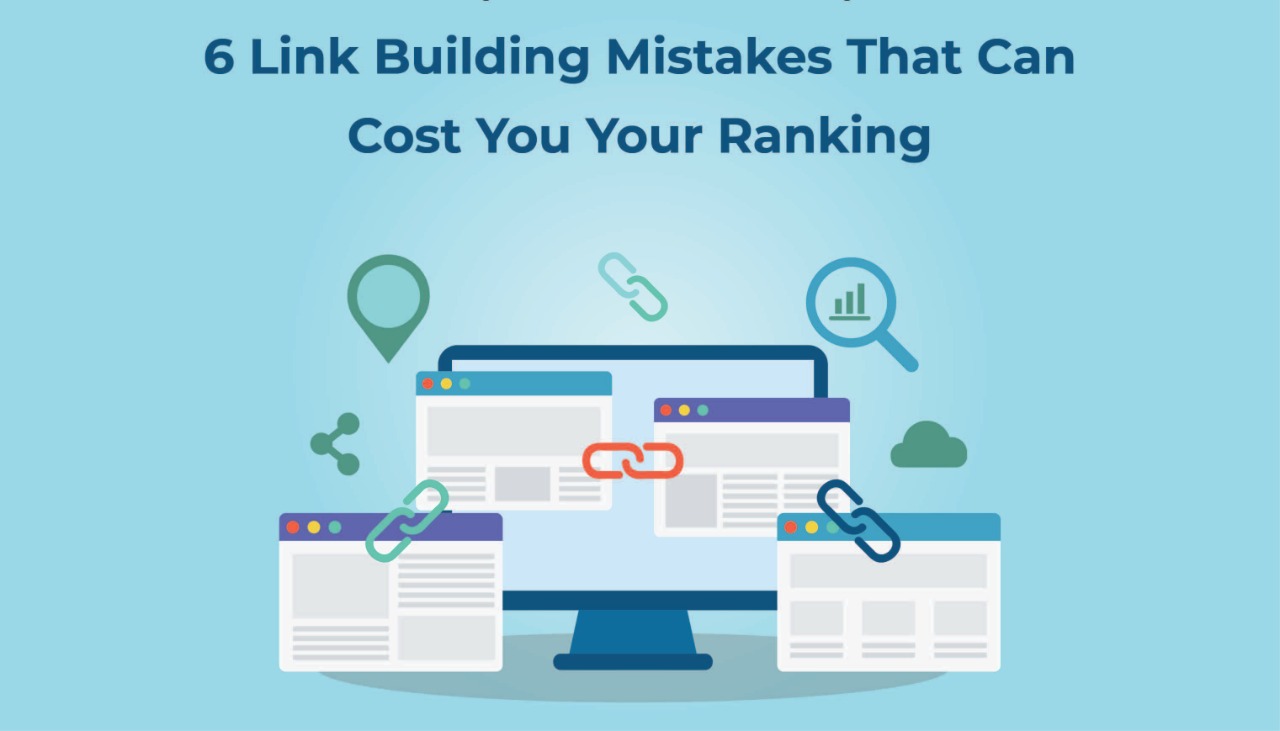Were you looking for just a crime thriller to read and found multiple blogs on top crime thrillers on Netflix? Or even blogs and websites on how to write a crime thriller. Well, that's the power of Google search. It shows you the best of the best, taking your search data entry and providing you with hundreds of results to your search query.
But not all sites make it to Google's rankings. Google's algorithms consider multiple factors that eventually determine a website's rank on SERPs. And one of these factors domain authority – a website's trustworthiness in the digital realm.
To get better rankings, experts suggest taking steps to increase your website's domain authority. Here's where link building comes into the picture.
So what is link building? The process of incorporating other websites' links in your website is known as link building or backlinking. Marketers use backlinks to divert traffic from one website, or webpage, to another. Search engines meticulously monitor these links through their algorithms and search bots. They find links with high-quality content related to what people search for on the internet. The higher the relevance and quality of information, the higher the link's quality and the greater the diversion of traffic to the final destination link. And generating quality links is what SEO experts and marketers intend to do for their clients.
Link building has distinctively altered digital marketing, and with a few smart SEO tips and tricks, one can acquire a high rank on SERPs. However, some mistakes in creating these links can also cause your rankings to plummet. In fact, you could even get banned altogether; and you wouldn't want that, would you?
So here's the thing. Don't make these link building mistakes we're about to tell you.
1. Insertion of Nofollow links on websites
Link building generally works by receiving online traffic because of the quality links on the PageRank algorithm of Google, Microsoft Bing, or Yahoo. However, some links cannot be followed and cause the website to lose its place in the search rankings. The PageRank algorithm does not send visitors to the websites with no-follow links because the link itself signals this protocol. The difference between a no-follow link and a do-follow link is present in the link formation, and since the former has a written tag at the end of the link that restricts redirection, traffic never gets diverted. Eventually, this causes the rankings of pages you want rank to drop.
Usually, the sources of these links are comments leading to comment spam, editable feature on the site, or the option to answer questions on the website. Any website that doesn't have a no-follow attribute falls in the claws of spam.
2. Linkage to only high authority pages
The reputation of the product precedes the product's sales, directly influencing the influx of growth and business for the company. Likewise, a website's reputation maintains its authority and position on the search charts based on the quality of links it receives or creates. Websites belonging to renowned companies and personalities of the real world possess high domain authority. The search engine crawls through the internet from webpages and then to the referral web links identifying these high-quality backlinks.
The backlinks of such sites are considered the most credible to obtain viewers for any other website. However, the inculcation of only or excessive-high DA links creates doubts and speculations for search engine masters. It reflects poorly on the website's image, as it shows "forceful reliability." Thus, a mix of high-quality links and low-quality links help create a more natural link building approach to acquire a signal of approval on PageRank radar. Continuously diversify your link placement on varying DA websites as long as they are relevant to your niche and generate good traffic.
3. Association with ill-reputed websites
Subsequently, the inbound links of websites that have developed a bad reputation on the internet bring negative reviews for the parent website and a downfall in rankings. Linking to ill-reputed and spammy websites can considerably damper your domain's trustworthiness and authority in the digital space. People tend to avoid sites that content related to porn, gambling sites, and illegal activities. Google gives significant consideration to its users and pushes back the websites with external links to bad websites down the roster. So it's necessary that when building links, you should check the website thoroughly before outreaching.
4. Numerous links on a single page of the website
Too much on a single plate is not a good idea for any aspect of a business. The search engines prefer quality over quantity. Websites that contain multiple external links on a single page give off a sense of desperation to gain more traffic by excessive linking.
While previously, link juice depended ridiculously on the number of links hosted by a website. It has now declined, giving its due place to high-quality links. A reasonable number of backlinks obtained over time from worthy webpages is a better approach to get more juice out of your links,
5. Dwelling in the business of buying or selling links
Link building is a sellable service. But the online forums and most industry experts recommend earning links based on the quality of content and information present on the website. Instead of buying backlinks to increase traffic or promote a link, marketers should focus on building enough credibility with their content for others to want to link back to them. It works as a two-way marketing relationship between websites through which both benefit in ranking.
Contrary to this, the notion of buying and selling links is not appreciated by search engines. The websites that indulge in black hat SEO practices regularly expose themselves to being banned for good!
6. Links with poorly worded anchor text
How the anchor text is placed within the content sometimes sums up the worth of the link. Forced and misplaced anchor texts lend little to no value to a link's quality and potential to drive traffic. It is essential to pay attention to anchor build-up to ensure the link actually fulfills its purpose of generating rankings or leads. Not doing so can negatively affect the link's visibility and advancement in its position on the search ladder.
Conclusion
The introduction of Google Penguin updates solely created to stop exploiting bad link building practices has forced marketers and content creators to up their game. It has become even more important to upgrade your backlinking tactics and avoid mistakes that can affect your rankings. Link building with a smart strategy can give the surety of increased traffic and top rankings for websites on SERPs.















Post Comments